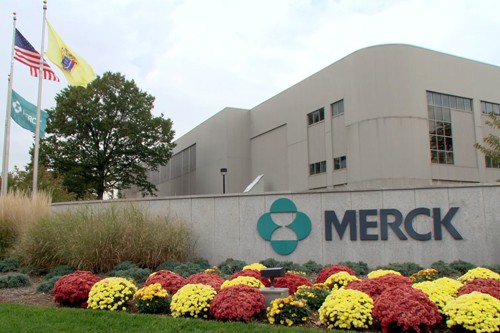
Merck & Co – known as MSD outside the US and Canada – has announced that it has entered into a definitive agreement to acquire Eyebiotech (EyeBio) in a deal worth potentially $3bn.
Expected to close in the third quarter of 2024, the transaction would “expand and diversify” Merck’s pipeline in ophthalmology, said Dr Dean Li, president, Merck Research Laboratories.
Under the terms of the agreement, through a subsidiary, Merck gains rights to all outstanding shares of EyeBio, including an upfront payment of $1.3bn in cash and a further potential $1.7bn in developmental, regulatory and commercial milestone payments.
As part of the deal, Merck will gain access to EyeBio’s lead candidate for the prevention and treatment of vision loss associated with retinal vascular leakage, Restoret (EYE103), an investigational, potentially first-in-class tetravalent, tri-specific antibody that is anticipated to advance into a pivotal phase 2b/3 trial of patients with diabetic macular oedema (DME) later this year.
Multiple retinal conditions are characterised by inflammation and the breakdown of the inner blood-retinal barrier, which results in vascular permeability and leakage into retinal tissue.
Vascular leakage is a well-known risk factor for retinal diseases, including DME and neovascular age-related macular degeneration (NVAMD).
The open-label phase 1b/2a AMARONE study previously evaluated Restoret, which acts as an agonist of the wingless-related integration site signalling pathway, in patients with DME and NVAMD.
Results showed that Resoret was well-tolerated in patients and experienced a mean reduction in excess retinal thickness of 80%, as well as a mean vision gain of 11.2 letters at 12 weeks.
Li said: “By combining our strengths, we aim to advance with rigour and speed the development of their promising pipeline of candidates targeting retinal diseases.”
Dr David Guyer, chief executive officer and president, EyeBio, said: “As a subsidiary of Merck, EyeBio will be positioned to tap into the resources and infrastructure needed to support the clinical, regulatory and commercial development of these candidates and help bring them to patients worldwide.”
Merck recently announced positive phase 3 results from the KEYNOTE-522 study of its PD-1 therapy, Keytruda (pembrolizumab), in combination with chemotherapy to treat patients with high-risk early-stage triple-negative breast cancer.




